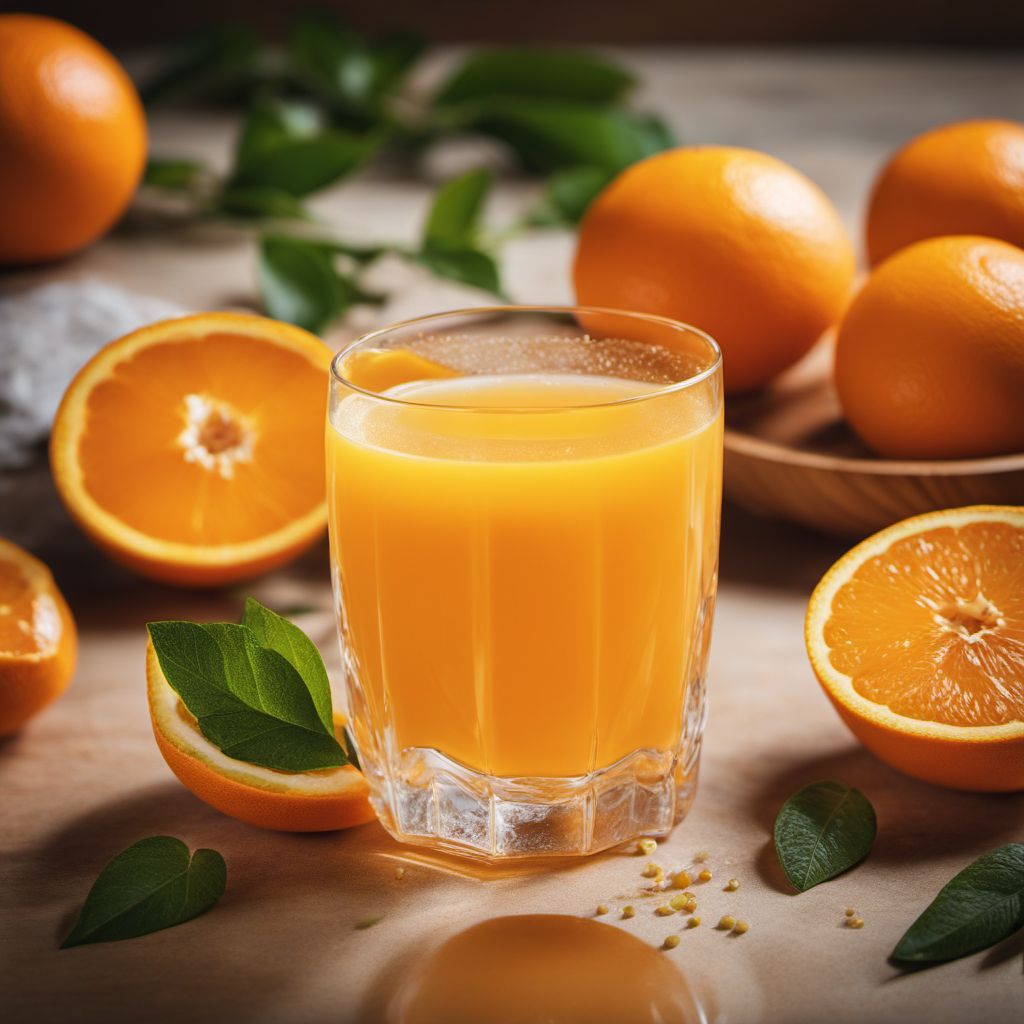
Ingredient
Juice, orange
"The Zesty Elixir: Unleashing the Vibrant Flavors of Freshly Squeezed Orange Juice"
Orange juice, extracted from the succulent fruit of the orange tree, is a vibrant liquid with a bright orange hue. It possesses a refreshing and tangy flavor that strikes a perfect balance between sweetness and acidity. The juice has a smooth and slightly pulpy texture, which adds a delightful mouthfeel to any dish or drink. Its appearance is characterized by its vibrant color and the presence of tiny suspended pulp particles, giving it a visually appealing and natural appeal.
Origins and history
Oranges, believed to have originated in Southeast Asia, have a rich historical background dating back thousands of years. They were highly valued in ancient civilizations, such as China and India, and were later introduced to the Mediterranean region by Arab traders. Oranges gained popularity during the Age of Exploration when European explorers brought them to the Americas. Today, oranges are cultivated in various parts of the world, with Brazil, the United States, and China being the leading producers.
Nutritional information
Orange juice is a nutritional powerhouse, packed with essential vitamins and minerals. It is an excellent source of vitamin C, providing a significant boost to the immune system. Additionally, it contains folate, potassium, and antioxidants, which contribute to overall health and well-being.
Allergens
Orange juice may trigger allergic reactions in individuals with citrus allergies. It is important to exercise caution and consult a healthcare professional if you suspect an allergy.
How to select
When selecting orange juice, opt for freshly squeezed or 100% pure orange juice without any added sugars or preservatives. Look for a product that is labeled as "not from concentrate" to ensure the highest quality and most natural flavor. Check the expiration date and choose a brand that uses oranges from reputable sources.
Storage recommendations
To maintain the freshness and quality of orange juice, it is best to store it in the refrigerator. Once opened, transfer the juice to an airtight container and consume it within a few days to preserve its flavor and nutritional value.
How to produce
Growing oranges requires a warm climate, preferably in USDA hardiness zones 9-11. Amateur gardeners can cultivate orange trees in pots or directly in the ground, providing well-drained soil, regular watering, and ample sunlight. It takes several years for an orange tree to bear fruit, but the reward of homegrown oranges and fresh juice is worth the wait.
Preparation tips
To extract the juice from oranges, roll them firmly on a countertop to loosen the pulp, then cut them in half and squeeze out the juice using a citrus juicer or by hand. For a pulp-free juice, strain it through a fine-mesh sieve. Orange juice can be enjoyed on its own, used as a base for cocktails, incorporated into marinades or dressings, or added to baked goods for a citrusy twist.
Substitutions
Lemon juice or grapefruit juice can be used as suitable substitutes for orange juice, depending on the desired flavor profile of the dish or beverage.
Culinary uses
Orange juice is a versatile ingredient used in a myriad of culinary applications. It is commonly enjoyed as a refreshing beverage, both on its own and in cocktails such as mimosas. Orange juice adds a tangy sweetness to marinades for meats, poultry, and seafood, enhancing their flavors. It is also a popular ingredient in salad dressings, sauces, and glazes, lending a bright and zesty note. In baking, orange juice can be used to moisten cakes, muffins, and cookies, infusing them with a delightful citrus aroma.
Availability
Oranges and orange juice are widely available in regions with suitable climates for cultivation, including countries such as Brazil, the United States, Spain, Mexico, and China.
More ingredients from this category » Browse all
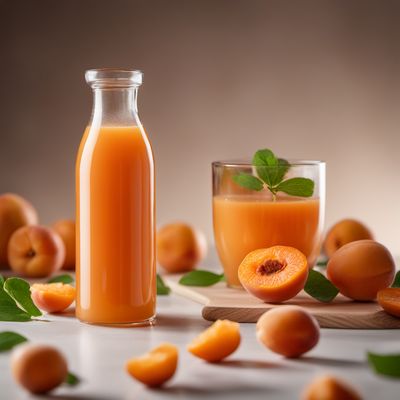
Juice, apricot
Apricot Juice: A Burst of Sweetness
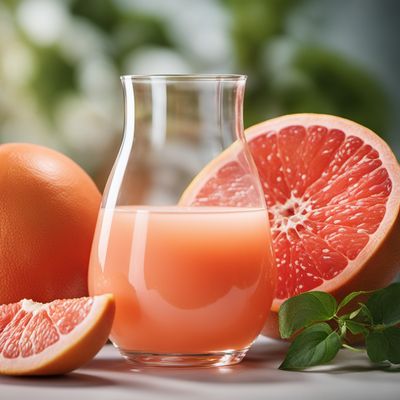
Juice, grapefruit
Tangy Citrus Burst
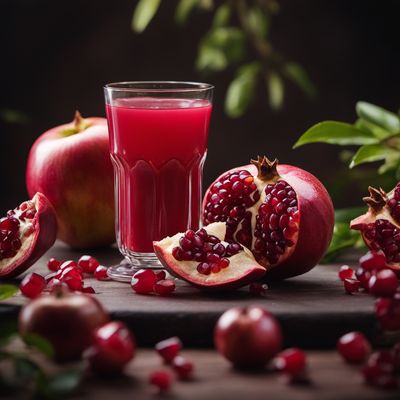
Juice, pomegranate
"The Ruby Elixir: Unveiling the Secrets of Pomegranate Juice"

Juice, black currant
The Dark Elixir
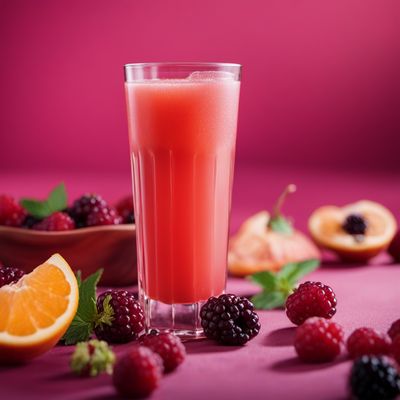
Juice, blackberry
The Dark Elixir

Juice, pineapple
Tropical Elixir

Mixed fruit juice
"Fruit Fusion Delight: A Symphony of Flavors in Mixed Fruit Juice"
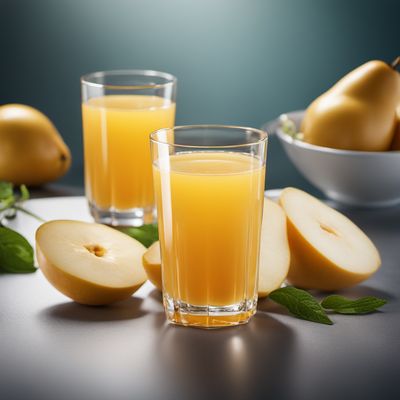
Juice, pear
The Refreshing Elixir of Pear

Juice, guava
"Tropical Delight: Exploring the Exotic Flavors of Guava Juice"

Juice, lime
The Zesty Elixir

Juice, nectarine
"The Golden Elixir: Unleashing the Vibrant Flavors of Nectarine Juice"

Juice, prune
The Sweet and Tangy Elixir of Prune Juice
Recipes using Juice, orange » Browse all

Ivorian Lokum Delight
Savory Sweetness: Ivorian Lokum Delight

Awadhi Orange Chicken
Tangy Awadhi Chicken Delight

Vegetarian Cochinita Pibil
Savory and Spicy Vegetarian Pulled Jackfruit

Homemade Cranberry Chutney
Tangy Delight: Homemade Cranberry Chutney Bursting with Flavor

Homemade Fig Cake
Heavenly Delight: Homemade Fig Cake from Croatia

Haitian-Inspired Citrus-Marinated Pork Griot
Zesty Caribbean Delight: Citrus-Marinated Haitian Pork Griot
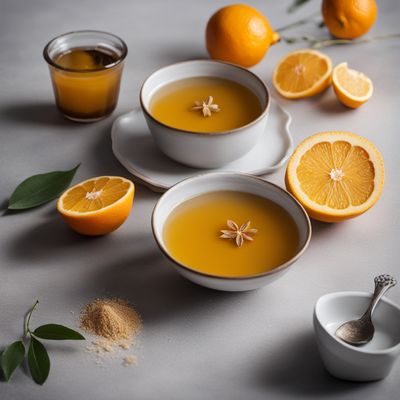
Gató d'ametlla with Citrus Syrup
Almond Delight: Gató d'ametlla with a Zesty Twist

Grilled Hákarl Skewers with Citrus Glaze
Savor the Unique Flavors of Iceland: Grilled Hákarl Skewers with Zesty Citrus Glaze

Palatine Iris Delight
Sicilian Sunshine: Palatine Iris Delight

Cochinita Pibil with a Mediterranean Twist
Mediterranean-Inspired Slow-Roasted Pork with Citrus and Herbs

General Tso's Chicken - Cuban Style
Cuban Spiced Chicken Delight

Zabaione with a Twist
Velvety Delight: A Modern Twist on Zabaione